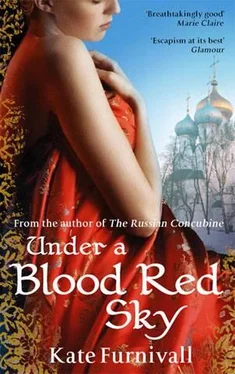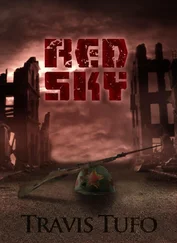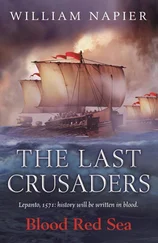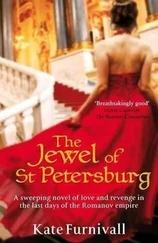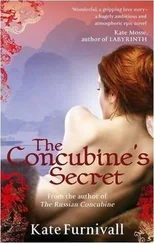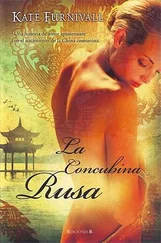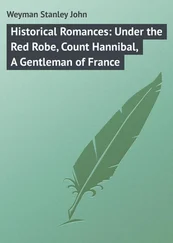Mikhail threw his head back and roared with laughter. ‘That is very black. I like it.’
She was grinning at him. ‘I knew you would. But don’t tell it to anyone else because they may not see it quite the way we do. Promise me.’
‘Is that what we Russians are reduced to? Neither dead nor alive?’
‘I’m alive,’ she said. ‘Look.’ She put down her tea on the desk, raised her arms above her head and performed a strange kind of snake dance with them in the air. ‘See? I move, I drink.’ She sipped her tea. ‘I eat.’ She popped the rest of the biscuit into her mouth. ‘I’m alive.’ But her blue eyes slowly darkened as she looked at him across the desk and said softly, ‘I’m not dead.’
It was as if an electric shock hit him. Abruptly he stood up. ‘Sofia, let’s get out of here.’
His hands almost fitted round her waist as he swung her up on to the rusty iron perch of the freight wagon. She was so light he thought she might take flight in the clear bright air.
‘It’s a good view from here,’ she said, shielding her eyes from the sun as she gazed out across the drab muddy waters of the River Tiva.
‘And from here.’ Mikhail was still standing among the weeds and dirt of the disused railway siding, looking up at her face.
She smiled. Was she blushing? Or was it just the breeze from the river tickling her skin? It wasn’t much of a place to bring her to but there was nowhere else, nowhere private anyway. He’d walked her past a string of warehouses, down to the railway line that tracked along the river to the point where the rails forked into this forgotten siding. Screened by scrub and trees, it was used as a graveyard for abandoned freight wagons. He chose one without sides, tossed a stone at a sharp-faced rat that was sunning itself on what remained of the wooden planking and lifted her on to it.
He leapt up easily and sat beside her, legs draped over the edge. He noticed her shoes were new and finely stitched, and when she bent to brush dust off them he saw again the white scars on two of her fingers and wondered how they came to be there. He felt an absurd desire to touch their shiny, vulnerable surface. Somewhere out of sight the sound of a train wheezing its way into the station reminded him that a large consignment of army uniforms had to be freighted out today. He should be overseeing to ensure there were no slip-ups.
‘To hell with it,’ he said.
‘To hell with what?’
‘This crucible.’
Her gaze left the river and studied his face. Her eyelashes were long, catching the sunlight and even paler than her hair. ‘Tell me what you mean.’
‘I mean Russia. This Motherland of ours has become a crucible and we’re all caught in it. Men and morals of every kind are being melted down and reshaped. No one can stay the way they were.’ He looked at her fragile bone structure and wondered what kind of steel held it together. ‘We all have to re-form ourselves.’
‘Have you?’
‘I’ve tried.’ He tossed a stone in a high arc towards the river in front of them, which was dragging itself northward, brown and lifeless, its surface filmy with white-flecked pollution pumped from the waste pipes of Dagorsk’s factories straight into its waters. A merchant ship, heavy with rust, steamed downstream, sending a wash of ripples behind it that spread, like fear spreads, with a whisper and a murmur, stirring up mud from below. ‘But right now, I’m not interested in changing anything. Least of all you.’
A smile flickered to her lips but she looked away as if to keep it secret.
‘Sofia, look at me.’
She turned back to him, shyly.
‘Why did you come to my office today?’ he asked.
‘Because there’s something I want to ask you.’
‘Ask away.’ He said it easily but he felt a part of himself tighten.
‘Are you proud of your father? Of what he did?’
Mikhail had a sense of scaffolding falling away, leaving him unsupported, balanced precariously on a ledge.
‘Isn’t every son proud of his father deep in his heart?’ he responded in the same light tone but it sounded unconvincing, even to himself.
‘No.’
‘Why do you ask such a question?’
She looked at him with that odd directness of hers, head tilted to one side, pinning him down, and then suddenly she smiled her widest smile and let him go.
‘I wondered what kind of relationship you had with your father,’ she said softly, ‘because you obviously love Pyotr very much. He’s a fine boy. I know people are reluctant to talk about the past these days because it’s so dangerous but… I just wondered, that’s all.’
Mikhail knew there was more to it but had no wish to push her in that direction. Besides, to talk of his son gave him pleasure. ‘Pyotr and I are too alike. I see so much of myself at that age in the boy. That unshakeable belief that you can mend the world. It’s enviable in some ways because it gives your life a rigid structure. Like the model bridge that I’m building, each girder firm and inflexible. Except believers’ girders come from blueprints laid down by someone else, by Lenin or Stalin or God or Mohammed. It doesn’t come from within.’
‘So you no longer think you can mend the world?’
‘No, I leave the world to take care of itself. I have no more interest in saving it.’
She let her gaze drift with the river. ‘All right, so you cannot save the world. But would you save a person? One individual?’
This was the question. He could feel it, as though a wheel had started to turn. Although she asked it casually, this was the question that had brought her to his office, he was certain. Would he save an individual?
‘Save them from what?’
‘From death.’
‘That’s a big question.’
‘I know.’
On her lap her fingers twisted round each other and Mikhail couldn’t take his eyes off their imperfections in her otherwise perfect flesh. He felt if he stared hard enough he would read in them what it was that was driving their owner. The fingers were long but broad at the tips, the nails short and pale as pearls except for the two on her right hand. They looked accustomed to hard labour. Farm work? Or was it something worse? Why had she never heard of the Shakhty trial? Was it because she’d been dragging trucks down deep mines or carting rocks out of the earth like a pack-animal?
Hell on earth, that’s what the labour camps were, everyone knew it and whispered it in secret corners. People committed suicide every day of the week rather than be sent to that kind of slow death. But how could this fragile creature have survived it with her spirit still so warm and so intact? Where was the bitterness and the anger that turned prisoners into hollow husks, unrecognisable to their families? Surely she couldn’t be one of them. He must be mistaken.
She was waiting for his answer, not looking at him.
‘Would I save an individual? That would depend,’ he said very deliberately, ‘on the person. But yes, if it were the right person I would try.’
She lifted her hands to her mouth but not before he’d seen her lips tremble. The sight of that weakness, that momentary dropping of her guard, touched him deeply.
‘That’s a big answer,’ she whispered.
‘I know.’
Mikhail reached out and took one of her scarred hands in his, wrapped his own large hands around it to keep it safe.
‘Why?’ she murmured.
‘It’s just the way I see things,’ he said, stroking one of her damaged fingers with the tip of his thumb. He could feel the ridges on it. ‘Someone has to fight back.’
‘But you said you have no interest any more in changing the world.’
‘Not the world, but maybe my small corner of it. I’m no good at following another man’s orders, especially when that man is Josef Stalin.’
Читать дальше
